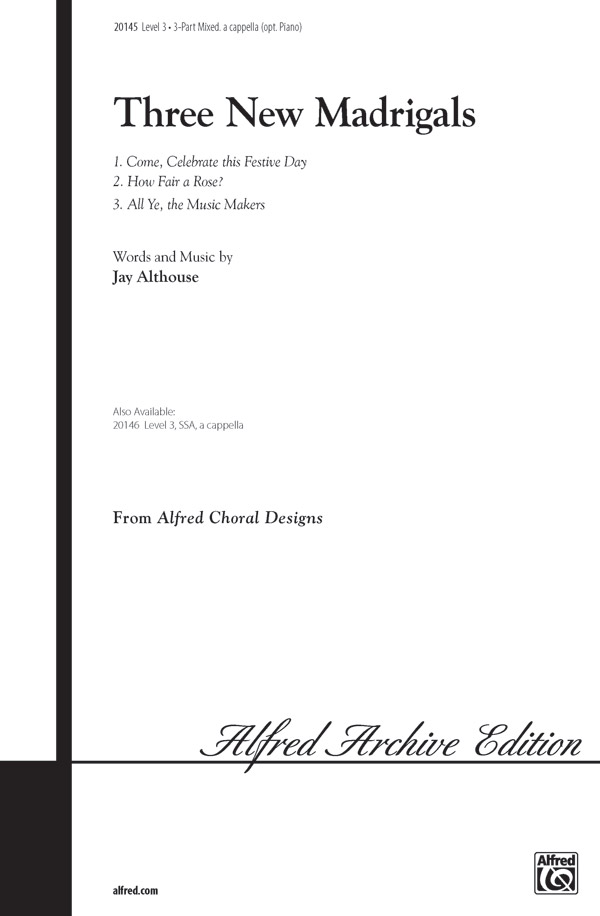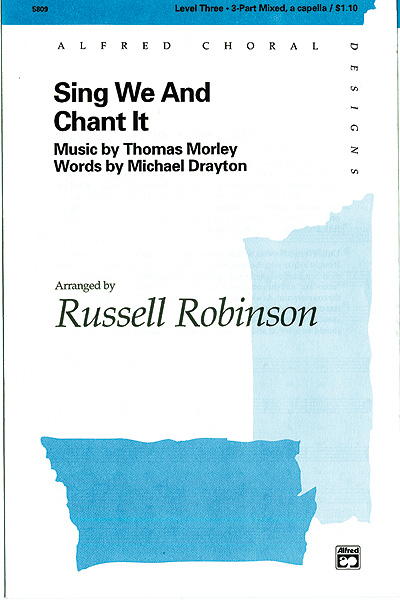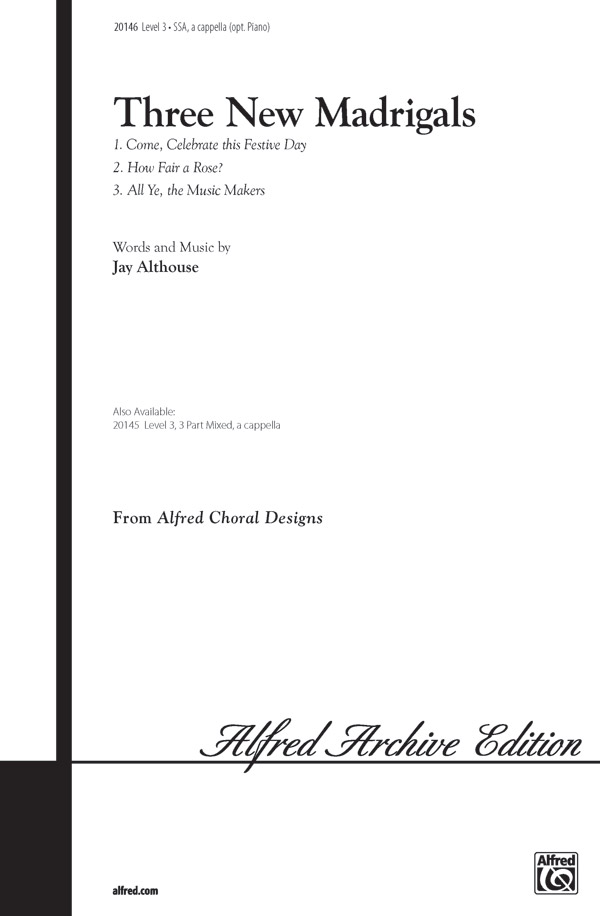Various Arrangers : Madrigals for 3-Part Mixed Vol 1Russell Robinson has now adapted this widely performed madrigal "Sing We and Chant It" for treble choirs. It's superbly reduced to preserve the harmonic and melodic structure of the original 5-part work. The quintessential madrigal, it features dynamic variations, much repetition for quick learning, and an open score for easy reading. Russell Robinson has adapted "Fire, Fire", one of Thomas Morley's most enduring madrigals, for 3-part voices, just right for today's young and developing choirs. The male part has a limited, 5-note range...great for changing voices. The independent vocal lines make it an excellent learning piece and a perfect "first madrigal" for any choir. Carefully tailored to the needs of middle school and junior high singers. "All Ye Who Love Music" was given its English text by Thomas Oliphant in 1837. This arrangement has been lowered one step from the original key of G major to F major. The soprano (Part 1) melody is basically the same; however, Parts II and III have been arranged iin such a way as to limit the range and for ease of singing, while retaining the sound and flavor of the original. As will all Renaissance madrigals, this piece should be sung lightly and lyrically. This trio of fresh, new, madrigals from Jay Althouse is a valuable addition to the choral repertoire mixed choirs. The first is in a traditional madrigal style, with a "fa la la" section and features and echo chorus. The second is lush and lovely, homophonic in nature, with a thought-provoking text. The third is up-tempo and includes an optional hand drum: it could be used as a processional or at a madrigal dinner. Use any or all of the three for concerts, contests, and adjudications.
Songlist: Fire, Fire, Come Celebrate This Festive Day, How Fair a Rose?, All Ye, the Music Makers, Sing We And Chant It






